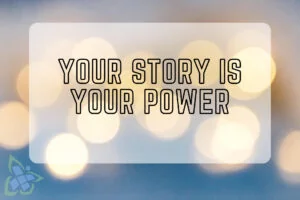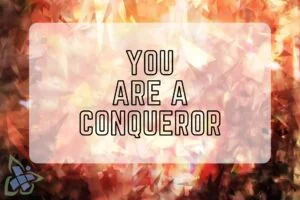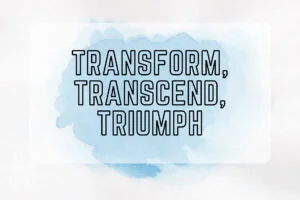The Cycle Of Tolerance And Withdrawal Traps The Addict Deeply
How do increasing tolerance and withdrawal symptoms interact in individuals struggling with drug addiction? Our counsellors are here to help you today.
FREE ASSESSMENT082 747 3422People think addiction looks obvious. They picture a person under a bridge, homeless, broken, and gaunt. That’s comforting, because it lets the rest of us say, “That’s not me. That’s not my family.”
But here’s the uncomfortable truth, addiction doesn’t wear a name tag. The colleague smashing deadlines but drinking every night could be addicted. The student popping pills to study. The parent at soccer practice with a “few too many” in their system. Addiction hides in plain sight.
You probably know someone struggling right now, and chances are, you’re ignoring it.
The First Red Flag
One of the earliest signs of addiction is tolerance. The body adjusts to the drug, so the same amount doesn’t hit as hard anymore. The Friday night beer becomes a six-pack. The one line becomes three. The painkiller that used to knock you out now just keeps you level.
We treat this like a badge of honour. Friends laugh at who can “handle more.” Entire drinking cultures celebrate the person who can out-drink everyone else. But tolerance isn’t impressive. It’s the body waving a red flag, saying: “This substance is rewiring me.”
It’s the first step into dependence, but it’s usually brushed off until it’s too late.
The Lies We Tell Ourselves
Ask anyone deep in addiction, and you’ll hear the same lines on repeat:
- “I can stop whenever I want.”
- “I only use on weekends.”
- “Work hasn’t suffered, so I’m fine.”
These lies are convincing because they let the person believe they’re in control. Families often buy into them too, because denial is easier than confrontation. But these excuses are classic warning signs. They’re the soundtrack of someone losing control while pretending they haven’t.
The hardest part isn’t spotting these lies, it’s admitting them. To yourself, and to the people watching you unravel.
The Psychiatric Criteria Without the Medical Jargon
The American Psychiatric Association has a checklist for diagnosing substance dependence. But medical jargon can hide the brutal reality. So let’s strip it down into plain language:
- You need more and more of the substance to feel anything.
- When you stop, your body punishes you with withdrawal.
- You use more than you intended, or for longer than you planned.
- You’ve tried to quit and failed, more than once.
- Most of your time is spent getting it, using it, or recovering from it.
- Work, relationships, hobbies, everything else fades into the background.
- You keep using even though it’s destroying your health, your finances, or your sanity.
The rule of thumb, if three or more of these hit home in the space of a year, it’s not “just a bad habit.” It’s addiction.
Families See It First And Pretend They Don’t
Addiction rarely happens in isolation. Families see it before anyone else. The missed dinners. The money that disappears. The mood swings. The glass hidden in the cupboard.
But here’s the ugly part, families are often the best at denial. Parents say, “He’s just stressed.” Partners say, “She’s blowing off steam.” And kids grow up watching chaos explained away as “just how it is.”
Enabling becomes part of the disease. Covering up missed work calls. Making excuses at social events. Hiding the bottles. The longer the denial continues, the more the addiction thrives.
If you’re covering for someone, you’re not protecting them. You’re protecting the addiction.
Why Diagnosis Is Only Step One
Getting a diagnosis of addiction is not a finish line. It’s the start. Naming the problem doesn’t fix it. It just removes the denial.
What comes next is what really matters:
- Detox: safely getting the substance out of the body.
- Rehab: therapy, structure, and learning how to live without it.
- Aftercare: support groups, counselling, and relapse prevention.
Diagnosis is like a doctor saying, “You have cancer.” It’s critical, but it’s not the cure. Treatment is the cure, and that takes time, effort, and support.
Rehabs in other cities of South Africa.Why We Miss the Signs
Why do we miss the signs of addiction until it’s too late? Because stigma keeps it in the dark.
People hide their use because addiction is judged differently than other illnesses. No one shames you for diabetes. No one whispers if you go to hospital for pneumonia. But admit you need rehab? Suddenly it’s a family scandal.
The hypocrisy is staggering. Society laughs at “wine o’clock,” sells shots as self-care, and glorifies binge culture. But when addiction takes hold, the same people recoil in judgment.
Until we stop treating addiction as a moral failure instead of a medical condition, people will keep hiding. And while they hide, families collapse, overdoses happen, and lives are lost.
Stop Waiting for Rock Bottom
There’s a dangerous myth that addicts have to “hit rock bottom” before they change. That’s nonsense. Rock bottom is death. Rock bottom is losing your kids, your job, your health. Why wait until someone is destroyed before offering help?
The truth is, the earlier addiction is recognised, the better the chances of recovery. You don’t need to wait for a DUI, a hospital visit, or a family breakdown. If the signs are there, tolerance, withdrawal, lies, denial, then action is already overdue.
Help is available. Detox clinics, rehab centres, support groups. But navigating them alone can feel impossible. That’s why advisory services like WeDoRecover exist. Their role isn’t to judge or lecture, it’s to guide. To connect you with the right level of care for your situation, whether that’s detox, inpatient rehab, or outpatient support.
Addiction doesn’t come with flashing warning lights. It creeps in quietly, disguising itself as stress relief, weekend fun, or harmless habits. But the signs are always there—tolerance, withdrawal, excuses, neglect, and denial.
Families see them. Friends see them. Often the person themselves sees them. The question is, will we keep pretending?
If you recognise these patterns in yourself or someone you love, don’t wait for rock bottom. Don’t wait for the overdose, the car crash, the broken marriage. Waiting doesn’t save lives, it ends them.
The signs are there. The truth is there. The only question left is whether you’ll act on it.

So many people are coming to South Africa for rehab that it is inevitable that…

Drug addiction is a terrible disease of mental obsession and physical compulsion for the patient…

Alcoholism is a part of our society that we cannot simply ignore. It effects not…








